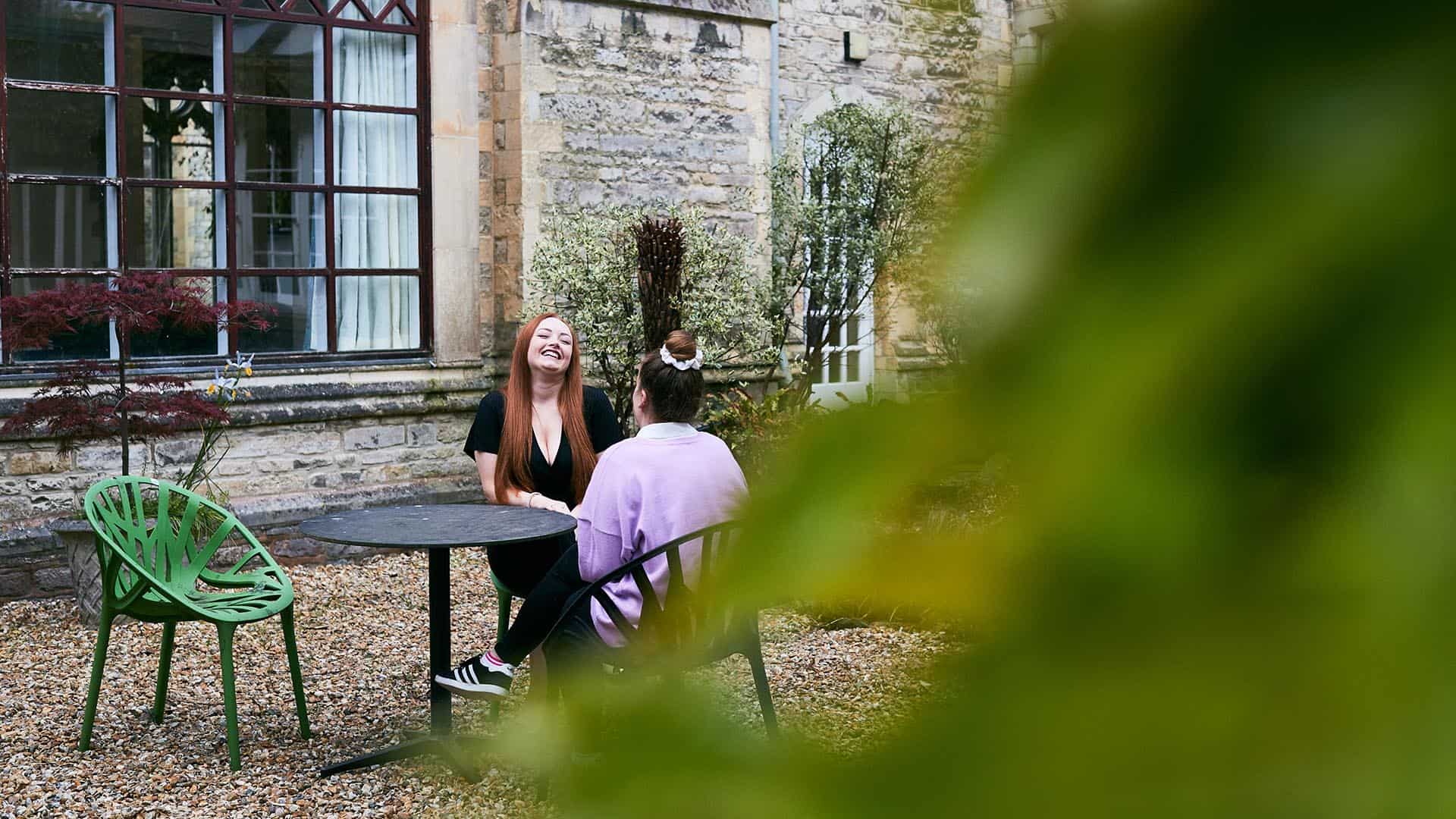Funding and Support
Funding Available for Outgoing Students
There are many different types of funding available for study and work abroad such living cost grants and travel grants.
If you're considering Study & Work Abroad as an option, you might be wondering about funding opportunities to support your stay abroad.
At the University of Chichester, we offer the Turing Funding, made available through the UK Government Scheme. This funding opportunity is open to all students interested in studying or working abroad. Moreover, students with special educational needs and disadvantaged backgrounds receive an uplift to their grant under this scheme.
In addition to the Turing Scheme, you may also be eligible to apply for other Government scheme or funding opportunities.
It's important to note that while the University of Chichester does not offer bursaries, all our study exchanges are fee-waived. This means that students continue to pay their fees to the University of Chichester and not to the Partner Institution abroad.
The Turing Scheme
The Turing Scheme, administered by the UK Government, provides funded opportunities for international study and work placements. Learn more about the Turing Scheme.
Each year, the University of Chichester applies to the Turing Scheme, and the availability of funding is communicated to students based on the outcome of the application process.
Funding under the Turing Scheme is calculated on a daily basis, taking into account factors such as the duration of the stay, the purpose of the mobility abroad, and any disclosed personal circumstances, such as special educational needs (SEND) or disadvantage. Upon application, individual funding requests are uploaded by the Study & Work Abroad Advisor onto the Government website for approval and confirmation.
It's important to note that while the Turing Funding provides valuable financial support, it may not cover the entire cost of the stay abroad. Therefore, students interested in participating in international study and work placements should also have a financial plan in place to supplement their funding from the Turing Scheme.
Eligibility criteria
 The Turing Scheme is open to all students at the University of Chichester participating in the Study & Work Abroad programme. This includes current students spending a year or a semester abroad during their studies, as well as those undertaking credit-bearing and non-credit-bearing work placements abroad.
The Turing Scheme is open to all students at the University of Chichester participating in the Study & Work Abroad programme. This includes current students spending a year or a semester abroad during their studies, as well as those undertaking credit-bearing and non-credit-bearing work placements abroad.
Additionally, the scheme is available for recent graduates within 12 months since their graduation, providing opportunities for work placements abroad to kick-start their careers.
Travel Grants
For students who do not fall under the SEND or Disadvantaged categories, there is another funding avenue to consider: the Travel Grant.
This grant provides support for travel costs associated with study and work abroad opportunities. It offers an alternative funding solution for students who may not qualify for the Turing Scheme but still require financial assistance to pursue international experiences.
It's important to note that students identified as SEND or Disadvantaged will have their travel costs covered regardless of their eligibility for other grants. This ensures equitable access to study and work abroad opportunities for all students, regardless of their personal circumstances.
Students who normally live in the UK may apply for a travel grant to help cover the costs such as flights, travel insurance, travel while abroad and visas. Travel grants are awarded depending on the country you normally live and each country has different eligibility criteria, more information is available at the following:
- England: https://www.gov.uk/travel-grants-students-england. Means tested grants for students on a work or study placement
- Scotland: https://www.saas.gov.uk/ and search for study abroad. Not means tested but the placement must be a compulsory part of your course and not a paid work placement.
- Wales: https://www.studentfinancewales.co.uk/practitioners/ and search for study abroad. Means tested grants for students
- Northern Ireland: https://www.studentfinanceni.co.uk/ and search study abroad travel grant. Means tested grants for students on a work or study placement
Funding cannot be double-claimed. Hence, if you are having your travel cost covered by the Turing Scheme, you won't be able to claim the Travel Grant.

Support
SEND & Disadvantaged Support Under the Turing Scheme
As part of our commitment to social justice and mobility, the Turing Scheme offers enhanced support for SEND and disadvantaged students.
SEND Support
Under the Turing Scheme, students with special educational needs or disabilities, including Additional Support Needs (ASN) in Scotland and Additional Learning Needs (ALN) in Wales, receive additional funding to supplement the cost of living allowances.
This funding is specifically allocated to cover expenses such as higher-priced flights, accommodation support, and medical insurance. It's important to note that students in receipt of Disabled Students' Allowance (DSA) should not apply for costs already covered by DSA funding.
All expenses incurred during the mobility abroad must be thoroughly documented. Upon submission of evidence, students receive grant payments designed to cover the entirety of their stay. Each student's individual circumstances are carefully considered during the application process to ensure tailored support.
Disadvantaged Students Support
Disadvantaged students encompass individuals meeting any of the following criteria:
- Individuals with an annual household income of £30,000 or less.
Recipients of Universal Credit or income-related benefits, providing financial support for themselves or dependents. - Individuals with experience in care or who are care leavers, including those from a looked after background at any life stage.
- Carers, providing unpaid support to family members, partners, or friends due to illness, disability, mental health issues, or addiction.
- Estranged individuals, including those with no contact with biological or adoptive parents for over 12 months or experiencing a recent breakdown in parental relationships.
- Refugees or asylum seekers.
This list is not exhaustive, and students with similar characteristics justifying additional support may also be considered.
If you currently access or have accessed in the past either our University of Chichester bursary or our University of Chichester Support Fund, you will also be eligible for a Turing Grant uplift.
Do not hesitate to apply to the Support Fund via the link provided if you believe this is relevant to you.
If you gain access to the Support Fund and would also like to benefit from the uplifted Turing grant amount, kindly let Ms Ali Collins, our Lead Student Money Adviser, know that you are happy for her to share this information with the Exchange office.
Disadvantaged students who provide evidence of their personal circumstances are eligible for extra travel funding, including transfers based on destinations. Additionally, they can access readiness-to-travel funding, covering expenses such as passports, visa applications, translated documents, police certificates, travel insurance, and medical certificates.
Students must retain all receipts and provide them throughout the process to facilitate the disbursement of funds.


